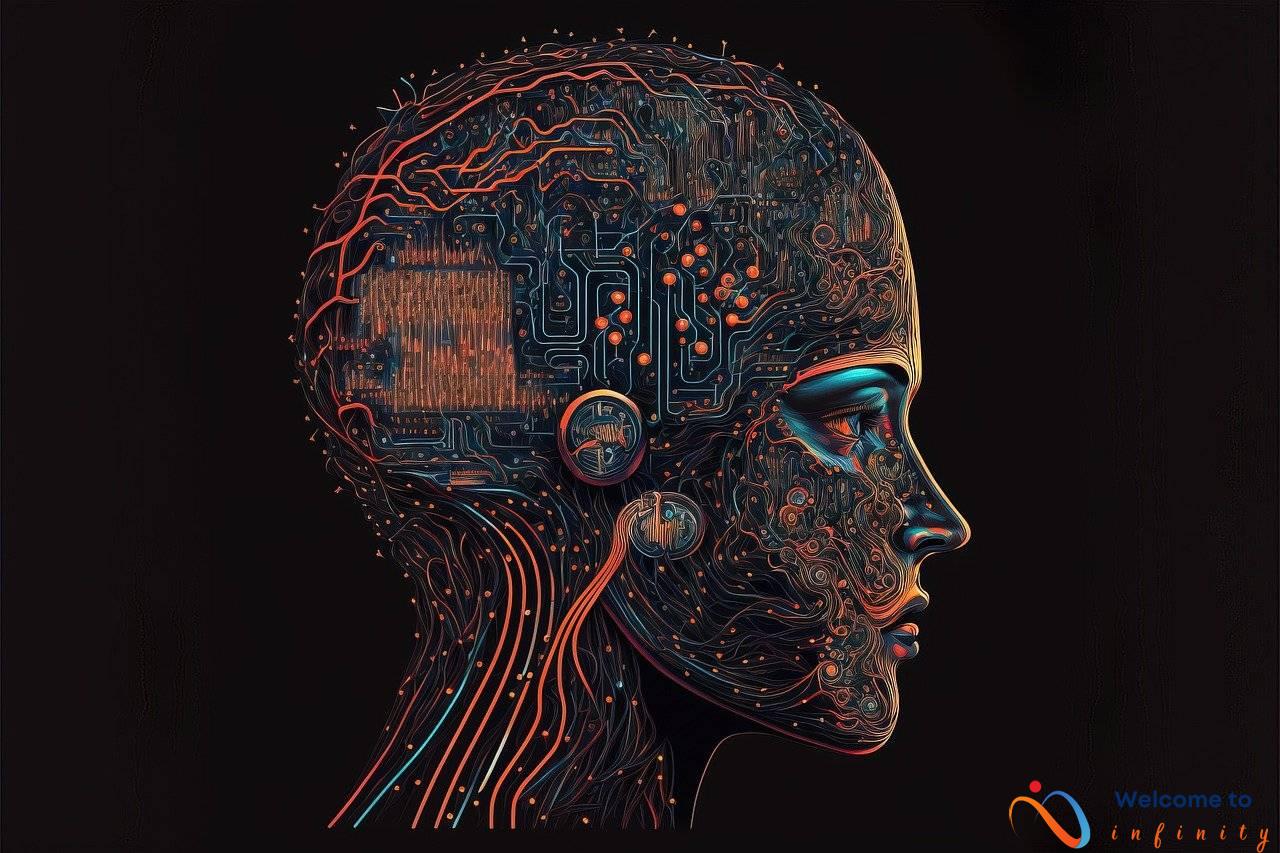Artificial Intelligence (AI) is revolutionizing the mobile experience for users by enhancing personalization and making mobile applications more user-friendly and secure. AI-powered personalization is creating tailored experiences for users, from recommended content to personalized app interfaces. voice assistants and chatbots are also becoming increasingly popular in mobile applications, allowing users to interact with their smartphones in a more natural and intuitive way, thanks to natural language processing technologies.
Another exciting feature of AI in mobile applications is visual search and image recognition, enabling users to search and identify objects in images. This feature can also provide personalized product recommendations based on the objects detected in these images, making mobile shopping more interactive and convenient. Moreover, AI-powered security features, such as behavior-based authentication and better data encryption, can protect users' privacy and prevent fraud and cyberattacks.
Overall, AI has transformed mobile applications into a smarter, more personal, and secure experience. In this article, we will delve deeper into how AI is enhancing user experience and personalization in mobile applications and how it is making our lives easier and more convenient than ever before.
AI-powered Personalization
AI-powered personalization in mobile applications is revolutionizing the way we interact with technology. By using machine learning algorithms, mobile apps can create unique and personalized experiences for each user. This can range from recommended content to personalized app interfaces, making the mobile experience more engaging and satisfying for users.
One of the ways AI-powered personalization works is by analyzing user data, such as their search queries, click behavior, and previous interactions with the app. This data is then used to create tailored recommendations for each user, such as content they might be interested in, products they might like to buy, or news articles they might find interesting.
In addition to personalized recommendations, AI-powered personalization also includes personalized app interfaces. By analyzing user behavior, mobile apps can adapt the interface to suit the user's preferences and usage patterns. For example, an app might rearrange its buttons or menus based on which features the user accesses most frequently.
Thanks to AI-powered personalization, users of mobile applications can enjoy a more customized and engaging experience than ever before. By tailoring content and interfaces to suit each individual user, mobile apps can deliver a more fulfilling and user-friendly experience overall.
Voice Assistants and Chatbots
Voice assistants and chatbots are revolutionizing the way we interact with our mobile devices. With the advent of natural language processing technologies, users can now interact with mobile applications in a more natural and intuitive way. Instead of tapping on buttons and typing, users can simply ask the voice assistants or chatbots to perform a task or answer a question.
Voice assistants and chatbots are being integrated into a wide range of mobile applications, from digital assistants like Siri and Google Assistant to customer service chatbots on e-commerce platforms. In addition, voice assistants and chatbots are also helping users with disabilities to interact with their mobile devices more effectively.
-
Natural Language Processing: One of the key benefits of voice assistants and chatbots is their ability to understand natural language. Using natural language processing technologies, voice assistants and chatbots can understand and respond to users' queries and commands more efficiently, reducing the barrier to entry for users who may not be familiar with traditional mobile interactions.
-
Personalized Recommendations: Another benefit of voice assistants and chatbots is the ability to provide personalized recommendations based on user preferences and past behavior. By analyzing users' data and behavior, voice assistants and chatbots can recommend products, articles, or services that are tailored to users' needs and interests.
Voice assistants and chatbots are transforming the mobile experience by enabling users to interact with their devices in a more natural and intuitive way. As AI technologies continue to evolve, we can expect voice assistants and chatbots to become even more useful and intelligent in the future.
Natural Language Processing
The integration of AI-powered natural language processing (NLP) in mobile applications has revolutionized the way users interact with their devices. With this technology, voice assistants and chatbots can now recognize and understand human speech, respond to queries and commands, and provide personalized recommendations to users more accurately and efficiently.
NLP works by breaking down spoken or written language into its constituent parts, analyzing the grammar, syntax, and context of the text to derive meaning. This allows voice assistants and chatbots to understand the intent behind a user's query, providing the user with more relevant and personalized responses. Additionally, NLP can help mobile applications to better understand and adapt to regional dialects and various accents, enhancing the user experience for a wider range of users.
The use of NLP also enables mobile applications to offer conversational interfaces, mimicking human-like interactions, and making it easier for users to communicate with their devices in a natural and intuitive way. This, in turn, increases user engagement and satisfaction, leading to better app retention rates.
The implementation of NLP in mobile applications is a game-changer in enhancing user experience and personalization. It makes possible for voice assistants and chatbots to perform more complex tasks such as scheduling appointments, booking travel, and making online purchases. By providing users with a more personalized and efficient experience, NLP-driven mobile applications have the potential to transform the way we interact with our mobile devices and make our lives easier.
Personalized Recommendations
AI-powered voice assistants and chatbots have revolutionized the way we interact with mobile devices by offering personalized recommendations to users based on their preferences. These recommendations can range from suggested products, services, news articles, and even music and videos. By analyzing past behavior patterns and user interactions, AI algorithms can generate accurate recommendations that are highly relevant to each user.
For instance, when searching for a product online, AI can analyze the user's previous search criteria and current location to generate product recommendations that match their personal preferences. Similarly, when browsing through a news app, AI can recommend articles based on the user's recent reading history, articles they have liked, and the popular articles among their peers.
Voice assistants and chatbots can also provide recommendations based on users' interactions with them. For instance, a user who frequently orders food through a chatbot may receive personalized recommendations for their favorite food items when they open the app the next time. Similarly, a music streaming app may generate recommendations for songs that match the user's mood or ones they have listened to repeatedly in the past.
In conclusion, AI-powered recommendations provide users with a personalized and unique experience that meets their specific needs. By delivering relevant and accurate recommendations, voice assistants and chatbots can enhance user satisfaction, engagement, and loyalty.
Visual Search and Image Recognition
Visual search and image recognition technologies have brought a new level of convenience and accessibility to mobile applications. With AI-powered algorithms, users can easily search for and identify objects within images, improving their overall experience.
Through visual search, users can snap a picture or select an image from their phone's gallery and use it to search for information online. For example, if a user takes a photo of a product they like, visual search technology can identify the object and take them to the product page to purchase it. This feature simplifies shopping and saves users the time and hassle of searching for the product online.
Image recognition technology allows mobile applications to recognize and identify objects in real-time. This technology is popularly used in social media applications, where users can tag their friends in photos automatically. It also helps users find images they are looking for quickly, whether it be in their phone gallery or a specific app.
Moreover, visual search and image recognition technologies have made mobile applications more accessible for users with visual impairments or disabilities. With these features, users can identify objects in images and read text more easily, providing greater independence and ease of use.
In addition, visual search and image recognition technologies can provide personalized product recommendations based on the objects detected in the images. This feature enhances the user experience by suggesting products that match the user's preferences and interests.
Overall, visual search and image recognition technologies have played a significant role in enhancing the user experience and personalization of mobile applications. As AI technology continues to improve, we can expect to see more advanced features and integration in the future.
Product Recommendations
Visual search and image recognition technologies not only make it easier for users to search for objects in images but also provide personalized product recommendations based on the objects detected in the images. For example, if a user takes a picture of a dress they like, the AI-powered app can identify the dress and recommend similar dresses from various online stores.
This technology can also be used to recommend complementary products based on the main object in the image. For instance, if a user uploads a picture of a living room with a sofa, the app can suggest matching pillows, rugs, and curtains, enhancing the overall shopping experience.
Personalized product recommendations not only increase customer satisfaction but can also boost sales for businesses. AI-powered product recommendations have been shown to increase click-through rates and conversions, leading to higher revenue and profits. By analyzing user behavior and preferences, AI-powered mobile applications can provide relevant and accurate product recommendations, making the shopping experience more enjoyable and efficient for users.
Improved Accessibility
Access to mobile applications is crucial for users, including those with visual impairments. Recognizing this need, AI-powered mobile applications have introduced visual search and image recognition technologies that help users with visual impairments to identify objects and read text in images. For instance, applications like Seeing AI uses AI to detect and read text, recognize faces, identify colors and objects.
Visual search technology analyzes the image and provides a list of relevant information about it. The technology explains the features of an image that cannot be seen by a person with visual impairments. This can be a powerful tool for users who have difficulty distinguishing between objects or reading small font sizes on their smartphone screens.
Another way that image recognition is helping improve accessibility involves the use of audio descriptions. AI-powered mobile applications can detect an image and input an audio description of the object in question. This makes it possible for those users who are visually impaired to get a better understanding of the image. Furthermore, mobile applications utilizing image recognition technology can make it easier for visually impaired people to navigate through the web and use mobile applications, resulting in a better user experience.
In summary, visual search and image recognition technologies have opened new doors for people with visual impairments. Using AI-powered mobile applications, people with disabilities can better understand the images in their environment, benefiting from the increased accessibility and improved user experience.
AI-powered Security
In the digital age, mobile application security has become a major concern for users. With the rise of cybercrime and identity theft, mobile applications need advanced security features to safeguard user information.
AI-powered security features use machine learning algorithms to detect and prevent fraudulent activities. Behavior-based authentication, a popular AI-powered security feature, analyzes user behavior and recognizes anomalies to detect and stop fraudulent activities. By monitoring user behavior patterns, mobile applications can identify suspicious behavior and prevent fraudulent activities.
Another security feature of AI-powered mobile applications is data encryption. AI-powered encryption algorithms can enhance mobile application security by making it harder for hackers to decipher data. By encrypting data, mobile applications can prevent data breaches.
Moreover, AI-powered mobile applications can use facial recognition and fingerprint scanning to prevent unauthorized access. Biometric authentication technologies provide an extra layer of protection for user data by limiting access to authorized users only.
Overall, AI-powered security features can significantly improve the security of mobile applications and protect user privacy. With increased security, users can trust mobile applications with their confidential information, which ultimately leads to a better mobile experience.
Behavior-based Authentication
AI-powered behavior-based authentication is a security feature in mobile applications that uses artificial intelligence to stop fraudulent activities by analyzing user behavior and recognizing anomalies. It works by monitoring the user's behavior patterns, such as typing speed, device usage, and location, and detecting any unusual activity that deviates from the user's normal behavior. This technology is particularly useful to thwart attackers who use stolen user credentials or credentials obtained from the dark web.
Behavior-based authentication can reduce fraud by protecting sensitive information in applications and prevent cyber attacks, such as phishing and Social Engineering attacks. AI-powered behavior-based authentication is particularly useful in industries that handle sensitive data, such as healthcare, banking, and financial services.
With the rise of mobile banking and online transactions, security is of utmost importance, and AI-powered behavior-based authentication provides a simple and effective solution. By analyzing the user's behavior, it eliminates the need for time-consuming and invasive security checks.
Overall, AI-powered behavior-based authentication is a game-changer in mobile application security. It detects and stops fraudulent activities by analyzing the user's behavior, offering a more secure way to access sensitive information and combat cyber attacks.
Better Data Encryption
With the increasing number of cyberattacks and data breaches, mobile application security has become a major concern for developers and users alike. AI-powered data encryption algorithms offer a powerful solution for enhancing the security of mobile applications.
Encryption is the process of transforming data into an unreadable format to prevent unauthorized access. Traditionally, encryption was done using complex mathematical algorithms, and the strength of the encryption depended on the complexity of the algorithm. However, AI-powered encryption algorithms are more secure and sophisticated, making it harder for hackers to decipher data.
AI-powered encryption algorithms use machine learning and pattern recognition techniques to analyze data and identify anomalous behavior. This allows them to detect and prevent unauthorized access to sensitive data. AI-powered encryption can also adapt to changing security threats by continually learning and updating itself to stay ahead of hackers.
Moreover, AI-powered encryption algorithms can also minimize the risk of human error, which is often a significant factor in data breaches. For instance, some algorithms can detect if a user is entering a weak password or sharing sensitive information via an unsecured network and prompt them to take corrective action.
In conclusion, AI-powered data encryption algorithms offer a reliable and efficient solution for enhancing mobile application security. By leveraging machine learning and pattern recognition techniques, these algorithms can identify potential security threats and protect sensitive data from unauthorized access.
Conclusion
AI-powered mobile applications have revolutionized the mobile experience, offering vast opportunities to enhance user experience and personalization. The use of AI-powered personalization has enabled mobile applications to create tailor-made experiences for users, from the recommended content to personalized app interfaces.
In addition, voice assistants and chatbots have become increasingly prevalent in mobile applications, making it easier for users to interact with their device in a more natural and intuitive way. Natural language processing technologies have been used to enable these voice assistants and chatbots to both understand and respond to users with greater efficiency. Moreover, personalized recommendations based on user preferences have been made possible through AI technology implemented in these features.
Visual search and image recognition technologies are also changing the mobile experience, allowing users to search and identify objects in images. This feature has enabled mobile applications to provide personalized product recommendations for users based on the objects detected in the images, and improved accessibility for users with visual impairments by enabling them to identify objects and read text in images.
Finally, with AI-powered security features in mobile applications, user privacy can be protected, and fraud and cyberattacks can be prevented. Behavior-based authentication has been developed to stop fraudulent activities by analyzing user behavior, while AI-powered data encryption algorithms have enhanced mobile application security by making it harder for hackers to decipher data.
Overall, AI-powered mobile applications have become an integral part of our daily lives. With intelligent personalization, natural language processing, visual search and image recognition, and AI-powered security features, mobile applications are becoming more user-friendly, accessible, and secure.











